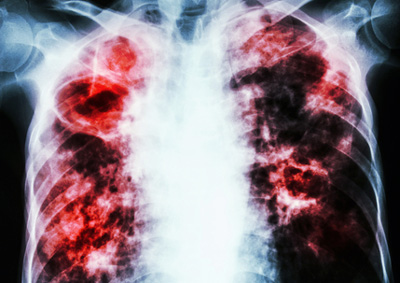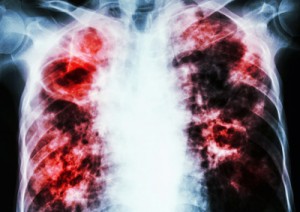New analyses add to efficacy and safety profile of Ofev in IPF
Posted: 13 November 2015 |
A post-marketing surveillance study showed that treatment with Ofev in the real-world clinical setting had a safety profile consistent with that observed in clinical trials…


New analyses of Boehringer Ingelheim’s Ofev for the treatment of idiopathic pulmonary fibrosis (IPF) were presented at the Pulmonary Fibrosis Foundation’s PFF Summit 2015.


In 2014, Ofev became one of the first FDA-approved drug treatments for IPF, a rare and serious lung disease that causes permanent scarring of the lungs.
In a post-marketing surveillance study in the US, treatment with Ofev in the real-world clinical setting showed a safety profile consistent with that observed in clinical trials supporting its approval by the FDA.
Imre Noth, M.D., Professor of Medicine and Director of the Interstitial Lung Disease Programme at The University of Chicago, and lead author of the analysis, said, “These first results from the post-marketing surveillance study, which showed a consistent safety profile of Ofev as described in the prescribing information, are important because they provide healthcare providers with additional information when considering Ofev for their patients with IPF.”
Post-marketing surveillance of the safety and tolerability of Ofev in the United States has been collected in the Boehringer Ingelheim drug safety and reporting database since Ofev was first approved last year. Until May 31, 2015, 3,838 people were treated with Ofev for a length of time ranging from 14 to 265 days.
The most frequently reported side effects were gastrointestinal in nature and included diarrhoea, nausea, vomiting and decreased appetite. Diarrhoea was the most frequently reported individual side effect, occurring at a similar frequency to that observed in the clinical trials supporting approval. No new safety concerns were identified.
Researchers also presented two post-hoc analyses from an open-label, extension of the one-year Phase III INPULSIS studies, known as INPULSIS-ON. The first analysis evaluated treatment effect in people with IPF who had severe lung impairment. The Phase III INPULSIS studies excluded people with severe lung impairment; however, they were allowed to enter the extension study even if their lung function declined to severe levels during the initial one-year treatment period. The new analysis reports that, in patients treated with Ofev, a similar decline in lung function was observed in people with severe lung impairment when compared to people with mild to moderate impairment (greater than or equal to 50 percent predicted).
Ofev continued to be effective out to two years
The second analysis suggests Ofev had a long-term effect on slowing forced vital capacity (FVC) decline, a measure of disease progression, for approximately two years, or 100 weeks.
Overall, the most common adverse events were diarrhoea, nausea, cough, common cold (nasopharyngitis), bronchitis, difficult or labored breathing (dyspnea), IPF disease progression, decreased appetite, weight decreased and vomiting. The most frequent serious adverse event reported was IPF, which includes disease worsening and acute exacerbations.
Danny McBryan, M.D., vice president, Clinical Development and Medical Affairs, Respiratory, Boehringer Ingelheim, commented, “Collectively, these analyses support the suggestion that Ofev continues to be effective out to approximately two years and that the decline in lung function is similar in people receiving Ofev with severe or mild to moderate impairment of lung function. These results add to our understanding of Ofev by providing insight into the impact over a longer period of time and in patients that were not included in the studies supporting its approval.”
Dose reductions or interruptions did not affect the efficacy of Ofev
A fourth abstract was a post-hoc analysis of combined data from the Phase III INPULSIS trials among people who had to reduce Ofev dosing from 150 mg twice daily to 100 mg twice daily or interrupt treatment to manage side effects, and patients who did not have their dose modified.
The analysis showed that dose reductions or interruptions did not affect the efficacy of treatment in people with IPF. Specifically, Ofev had a similar effect on FVC decline (a measure of disease progression) irrespective of having greater than or equal to one dose reduction/interruption and less than or equal to 90 percent dose intensity. Overall, the average changes in lung function (as measured by a change in FVC from baseline to 52 weeks) were similar whether or not people had at least one dose reduction/interruption, or a reduction in dose intensity.




